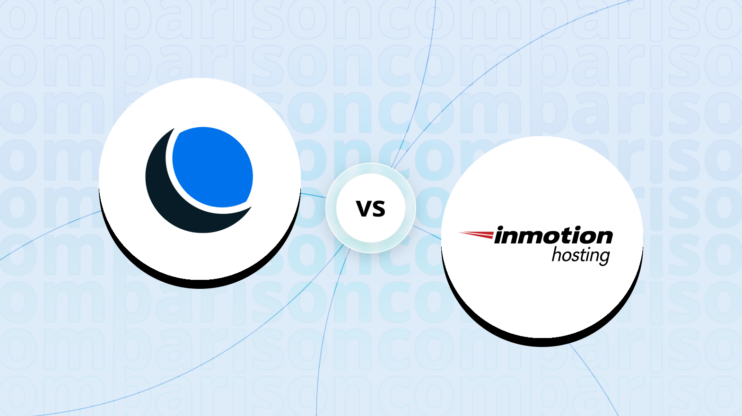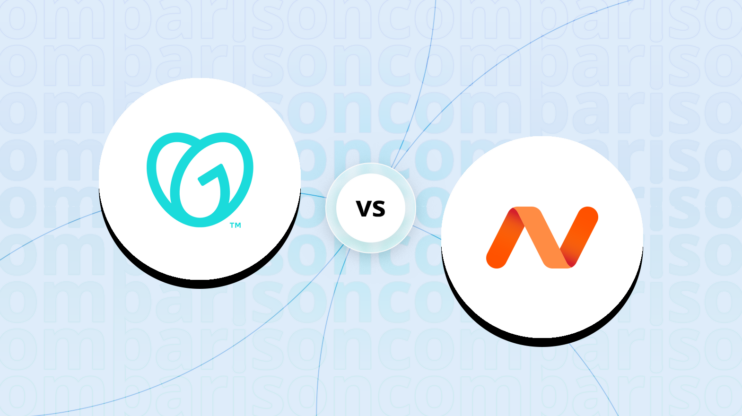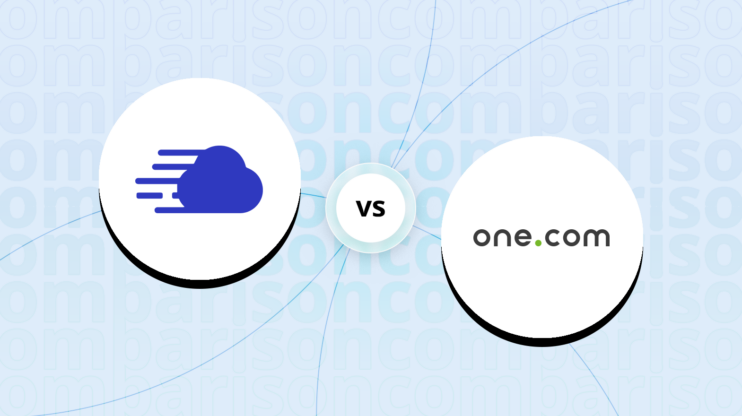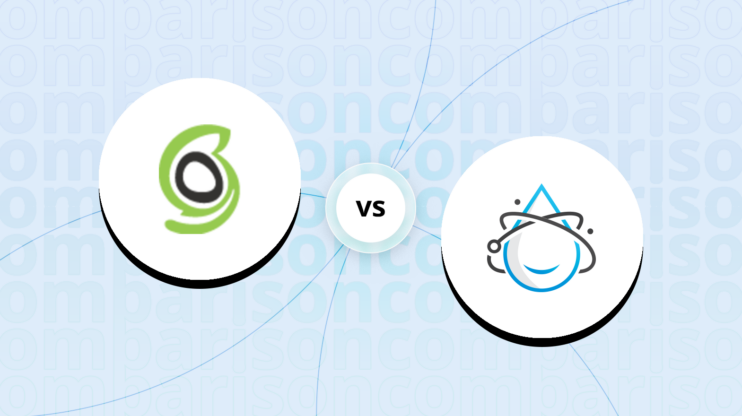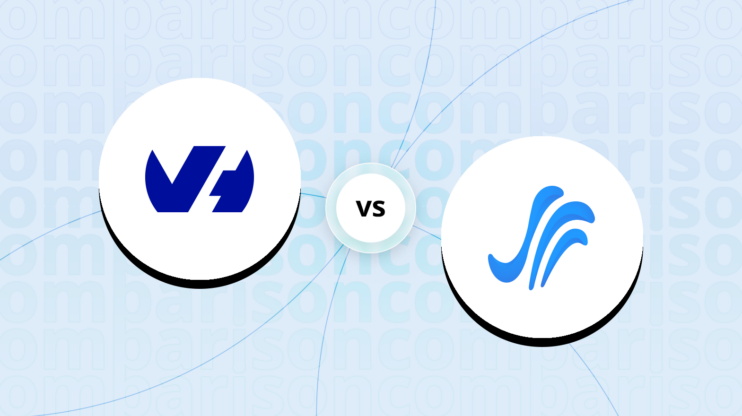Digital Ocean vs Dreamhost: Final verdict
Looking over DigitalOcean vs. DreamHost, both offer high-quality web hosting solutions with slightly different focuses.
-
DigitalOcean (Overall grade: 8.3)
distinguishes itself with its developer-oriented features and high-performance hosting. It provides various hosting types including VPS and managed services, ensuring flexibility and scalability catering to developers, startups, and high-traffic websites. Its inclusion of SSD storage, a CDN, and 14 globally distributed data centers provide a notable boost in performance. However, it lacks some beginner-friendly features like a built-in website builder, and their user support can sometimes be slow for non-enterprise users. With strong security measures, compliance certifications, and a transparent pricing model, DigitalOcean is an excellent choice for those comfortable with a more hands-on approach to server management.
DreamHost (Overall grade: 8.2)
targets a broader audience with user-friendly features and cost-efficient plans. Its shared and managed WordPress hosting options with unlimited storage and free domain registration appeal strongly to personal bloggers and small businesses. DreamHost also offers a custom control panel and inclusive email hosting, making it more accessible for those looking for an all-in-one solution. The 24/7 support and money-back guarantee further enhance its attractiveness for beginners and small enterprises, although the lack of phone support and occasional slow response from customer service slightly dent its otherwise commendable reputation. DreamHost’s well-rounded offerings and ease of use make it a reliable choice for those seeking straightforward web hosting without a steep learning curve.
 Overall grade:8.3 |
 Overall grade:8.2 |
|
|---|---|---|
| Uptime and Availability | 9.2 | 8.5 |
| Hosting Performance | 8.8 | 7.8 |
| Hosting Security | 9.1 | 7.8 |
| Price | 8.7 | 8.2 |
| Hosting Features | 6.9 | 7.9 |
| Ease Of Setup | 8.2 | 8.9 |
| User Management | 8.0 | 8.1 |
| Customer Support | 7.8 | 8.3 |
| User feedback | 4.6/5 | 4/5 |
Hosting types offered
Both platforms provide a variety of hosting types, each designed to meet the different needs of users.
 |
 |
|
|---|---|---|
| Shared hosting | ||
| Cloud hosting | ||
| WordPress hosting | ||
| Ecommerce hosting | ||
| VPS hosting | ||
| Dedicated hosting |
Although both offer a variety of hosting plans tailored to different needs, in
certain cases, one platform may prove to be more suitable.
Detailed comparison
Uptime and availability
Evaluates the average uptime statistics, uptime guarantee and overall availability of the hosting
provider
Score Components:
- Uptime percentage (30%): evaluates the uptime statistics in given period of time
- Uptime guarantee (20%): Assesses if the platform offers an uptime guarantee and
whether the actual uptime matches the promised guarantee. - General performance (25%): Evaluates how fast is the average response time and overall
it’s stability. - Responsiveness (10%): Adaptability to different devices and screen sizes.
- Availability (25%): Reflects the total downtime and number of outages.
 9.2
9.2
 8.5
8.5
Section 1: Winner DigitalOcean: A reliable provider with exceptional uptime and availability features.
Section 2:
DigitalOcean sets itself apart with a comprehensive suite of uptime and availability features. It offers real-time alerts for latency and downtime via Slack or email and monitors endpoints across four global regions. Additionally, users are notified about SSL expiry, slowdowns, and other issues, which safeguards site integrity. The platform also boasts customizable alerts and 24/7 global monitoring, enhancing its reliability.
Section 3:
DreamHost guarantees 100% uptime and compensates for any downtime. It has demonstrated strong performance in various uptime and response time tests, making it a reliable option. Though one test reported a 99.83% uptime over 12 months, other evaluations showed consistent 100% uptime. DreamHost uses SSD drives and has a proprietary control panel, ensuring fast and reliable server performance.
Which one has better hosting performance?
Score Components:
- Hosting speed (30%): This includes SSD quality, Load times, PageSpeed score ranges,
additional information on website speed, built-in plugins for performance enhancement, available caching
methods, and CPU/RAM options - CDN (20%): Considers whether CDN is available or not, whether it’s free or paid, and
the quality of the CDN service - Available data centers (30%): Evaluates the number of data centers and their locations
globally. - Scalibility (20%): Looks at whether elastic scaling is available, the process required
to scale (manual upgrade vs. automatic scaling), the presence of dedicated servers, and the costs
associated with scaling.
 8.8
8.8
 7.8
7.8
🏆 Winner DigitalOcean: Reliable hosting with comprehensive features for developers and businesses alike.
When comparing the general performance of DigitalOcean and DreamHost, several factors stand out. DigitalOcean impresses with its SSD storage, which ensures quick load times and improved database operations. Its content delivery network (CDN) is included in the service, providing a substantial boost in performance. DigitalOcean’s 14 globally distributed data centers enhance worldwide accessibility. DreamHost also utilizes SSD storage and offers NGINX hosting for high performance, alongside server-level caching. However, it lacks a built-in CDN and instead depends on high-performance cloud infrastructure. DreamHost’s 100% uptime guarantee is noteworthy, but DigitalOcean’s 99.99% SLA remains highly reliable.
Website Speed
DigitalOcean shines in website speed owing to its integrated features like SSD storage, CDN, and various caching mechanisms, such as page and object caching. These features together significantly reduce load times and improve overall performance. In comparison, DreamHost also benefits from SSD storage and server-level caching but lacks the extra layer of CDN support. This makes DigitalOcean a slightly better choice for ensuring quicker page speeds and an optimal user experience.
Scalability
Both hosting providers offer scalable solutions, but they handle them differently. DigitalOcean allows for horizontal scaling with its Droplet system, enabling easy upgrades and resource management according to your needs. Although specific cost details for scaling are not provided, the pricing remains predictable and based on usage. DreamHost offers expandable RAM and storage, but the specifics on scaling costs are also unclear. DigitalOcean’s approach to elastic scaling and load balancing makes it a more versatile option for growing websites and applications.
Which one has better security features?
and regulatory requirements
Score Components:
- Technical security measures (40%): This includes encryption, firewalls, DDoS
protection, secure configurations, server monitoring, access control and availability of security addons
(e.g Sitelock security). - Operational security measures (30%): Encompasses data privacy, backups and data
redundancy. - Compliance and certifications (20%): Adherence to legal and regulatory requirements
(e.g., GDPR, HIPAA) and possession of certifications (e.g., ISO 27001, SOC 2). - Business and reliability (10%): Factors in the provider’s reputation, uptime
guarantees, and customer support.
 9.1
9.1
 7.8
7.8
🏆 Winner DigitalOcean: DigitalOcean excels with an extensive array of security measures and certifications.
Both DigitalOcean and DreamHost, have notable differences in their approaches to technical and operational
security, as well as in their compliance with regulations.
Technical security measures:
DigitalOcean stands out with DDoS protection, cloud firewalls, and a web application firewall, providing multifaceted defense mechanisms against cyber threats. DreamHost also offers solid security, including DDoS protection and mod_security, but lacks a web application firewall. Both providers ensure secure remote access with SSH and multi-factor authentication. DigitalOcean uses data encryption both at rest and in transit, whereas DreamHost enhances PHP performance with OPcache. DreamHost’s unique feature is RAID 1 Storage, which DigitalOcean does not specify.
Operational security measures:
DigitalOcean includes automatic backups and snapshots for data integrity, while DreamHost offers automatic software updates for patched security. DigitalOcean’s managed databases with SSL/TLS and VPC for secure networking give it an additional edge. DreamHost’s service includes malware scanning through DreamShield and password protection via .htaccess. Both providers have comprehensive support services, but DreamHost’s 24/7 monitoring and custom control panel offer additional convenience.
Compliance and certifications:
DigitalOcean demonstrates compliance with multiple international standards, including GDPR, PCI-DSS, SOC 2, SOC 3, ISO/IEC 27001:2013, and CSA STAR. DreamHost is GDPR compliant and supports PCI requirements, but does not offer HIPAA compliance like DigitalOcean. DreamHost provides a privacy center for GDPR adherence, but does not equal DigitalOcean’s vast array of certifications.
 |
 |
|
|---|---|---|
SSL certificates |
Supported |
Supported |
Additional security features |
DDoS, firewalls, backups |
DDoS, DreamShield, RAID 1 |
PHP versions |
Supported |
Supported, OPcache |
GDPR compliance |
Compliant |
Compliant |
HIPAA compliance |
Not specified |
Not compliant |
PCI compliance |
Compliant |
Compliant (for their own sites) |
Hosting features
Score Components:
- Domains (20%): Assesses the availability of a free domain, domain purchase options, and
pricing - Email (15%): Considers if the provider offers full email hosting, or is reselling
third-party service, and if the email is only transactional or not - Website builder (15%): Checks if website builder is available, and it’s user
friendliness and overall the level of customization allowed. - Staging environment (20%): Determines if a staging environment is available, allowing
for testing changes before going live. - FTP & SFTP accounts (10%): Evaluates if and how easily users can access FTP and
SFTP accounts - Git and SSH access (20%): Assess whether Git is integrated into the hosting service and
if SSH access is provided
 6.9
6.9
 7.9
7.9
🏆 Winner
DreamHost: A versatile hosting provider that offers a range of budget-friendly and feature-rich hosting plans.
Both DigitalOcean and DreamHost provide robust hosting solutions tailored to different user needs, but their offerings diverge in significant ways. DigitalOcean appeals to developers and those comfortable with server management, offering various hosting types including VPS, dedicated, and managed services, along with powerful security features like DDoS protection and automatic backups. While DigitalOcean’s flexibility and performance are commendable, it lacks a built-in website builder which might hinder users seeking guided setup.
DreamHost, on the other hand, emphasizes user-friendliness with options like instant WordPress setup and a custom control panel. DreamHost’s shared and managed WordPress hosting plans come with unlimited storage, free domain registration, and straightforward website builder tools, making it a go-to for personal bloggers and small businesses. Additionally, DreamHost’s free migration service and robust support elevate its appeal for users wanting an easy transition without hidden costs.
 |
 |
|
|---|---|---|
Free domain |
No |
Yes, with every plan |
Free SSL |
Yes |
Yes |
Email hosting |
No |
Yes |
Website builder |
No |
Yes |
Staging environment |
Yes |
Yes |
FTP & SFTP account |
Yes |
Yes |
Git and SSH access |
Yes |
Yes |
Free backup |
No |
Yes |
Money back guarantee |
No |
Yes, within 97 days |
a location.
As a result in rare cases the features mentioned here can differ from the ones you see on their websites.
Both providers support a range of users from beginners to experts with user-friendly website builders and WordPress staging areas. However, in terms of developer tools, both DigitalOcean and DreamHost offer robust options including SSH access, support for multiple programming languages, and Git for version control, thus appealing to developers looking for advanced capabilities.
Email services:
DreamHost includes professional email addresses with their shared and VPS hosting plans, supporting the setup of custom email campaigns and transactional emails. They also offer reselling of Google Workspace. DigitalOcean does not provide native email hosting, directing users to third-party email solutions, which could be less convenient for users requiring integrated email services.
Price
Score Components:
- Plan value (40%): What each pricing tier offers.
- Transparency and clarity (30%): Clearness of pricing structures.
- Flexibility of plans (20%): Range of options to suit different budgets.
- Hidden costs (10%): Additional expenses not included in the plan.
 8.7
8.7
 8.2
8.2
🏆 Winner
DigitalOcean: Offers diverse hosting plans for various needs with transparent pricing and a range of essential features.
Evaluating the pricing of plans among various hosting providers can be complex due to their differing pricing and renewal strategies. Additionally, certain plans require annual commitments, which adds to the difficulty of making comparisons. The prices listed are based on monthly commitments; plans requiring annual commitments are indicated. Additionally, although some providers offer identical plans for WordPress and shared hosting, we have created separate tables for each to enhance clarity.
When comparing DigitalOcean and DreamHost, DigitalOcean provides budget-friendly entry points with its Basic Droplet starting at $4/month, while DreamHost’s Shared Starter plan is priced at $2.59/month (an introductory rate that renews at $5.99/month). DigitalOcean also includes more extensive VPS and WordPress hosting options, starting at similar price points but scaling higher with performance-oriented choices like Dedicated CPU Droplets and Cloudways managed hosting. DreamHost offers competitive managed WordPress plans starting at $16.95/month, which cater to higher traffic sites with unlimited bandwidth and extensive support.
 |
 |
|---|---|
|
Basic Droplet $4/month:
1 website, scalable storage, scalable bandwidth, support via cloudways, free SSL, automatic backups. Value for price:8.5
|
DreamPress $19.99/month:
1 website, 30GB SSD storage, unmetered bandwidth, 24/7 WordPress specialized support, free domain registration, automated daily backups, ~100K monthly visitors, built-in caching. Value for price:7.5
|
 |
 |
|---|---|
|
Secure Web Hosting N/A:
VPS hosting, SSL Certificates, unlimited storage, limited bandwidth, 24/7 support, SSH access. Value for price:N/A
|
Shared Starter $5.99/month:
1 website, unlimited storage, unmetered bandwidth, 24/7 support, free domain registration, free SSL. Value for price:8.0
|
 |
 |
|---|---|
|
Storage-Optimized Droplets $131/month:
Unlimited websites, 300GB SSD storage, 4TB bandwidth, support via cloudways, 24/7 support. Value for price:8.0
|
DreamCompute $10/month:
Unlimited websites, scalable SSD storage, blazing-fast networking, root access, 24/7 support. Value for price:8.0
|
As a result in rare cases the prices displayed here can differ from the ones you see on their websites.
Enterprise plans
For enterprises, DigitalOcean provides highly specialized options such as Dedicated CPU Droplets starting at $42/month and Memory-Optimized Droplets starting at $84/month, which can handle intensive workloads. DreamHost offers dedicated servers with the Enhanced 32 plan at $299/month, featuring a high-performance 12-core CPU and 32GB RAM, providing uncapped bandwidth and root access. DigitalOcean offers plans that scale effectively to meet varying demands, while DreamHost’s dedicated servers provide ample resources for high-traffic enterprise needs.
Digital Ocean vs Dreamhost: Ease of setup
platform.
Score Components:
- Site migration (25%): Assesses whether the provider offers tools for site migration,
either automated or manual, and whether these services are free or require a fee. - Admin panel usability (35%): Evaluates the type of admin panel provided, such as the
standard cPanel or a custom solution, focusing on its accessibility and user-friendliness for both
technical and non-technical users. - Setup features (20%): Examines the availability and ease of use of various setup
features, including FTP accounts, file managers, email account setup, PHPMyAdmin, and easy CDN
configuration. - Help center quality (20%): Measures the quality and accessibility of the provider’s
help center resources, including articles and tutorials.
 8.2
8.2
 8.9
8.9
🏆 Winner
DreamHost: Superior ease of setup and comprehensive support.
DreamHost employs a custom-built control panel aimed at ease of use for all types of users. The interface is intuitive, covering everything from domain management to advanced features like shell access and SFTP. Both platforms excel in providing a user-friendly experience but target slightly different audiences – DigitalOcean appeals more to developers, while DreamHost is user-friendly for both beginners and pros.
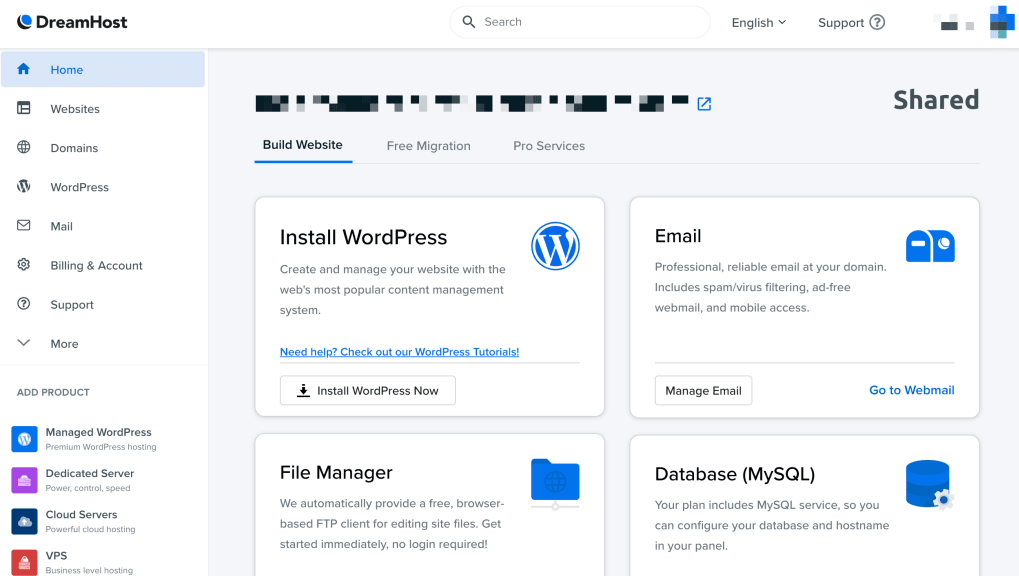
DigitalOcean offers a custom control panel designed for cloud infrastructure, catering mostly to developers. This panel facilitates the management of Droplets, databases, and other resources. For non-technical users, DigitalOcean’s App Platform simplifies deployment without requiring knowledge of the underlying infrastructure.
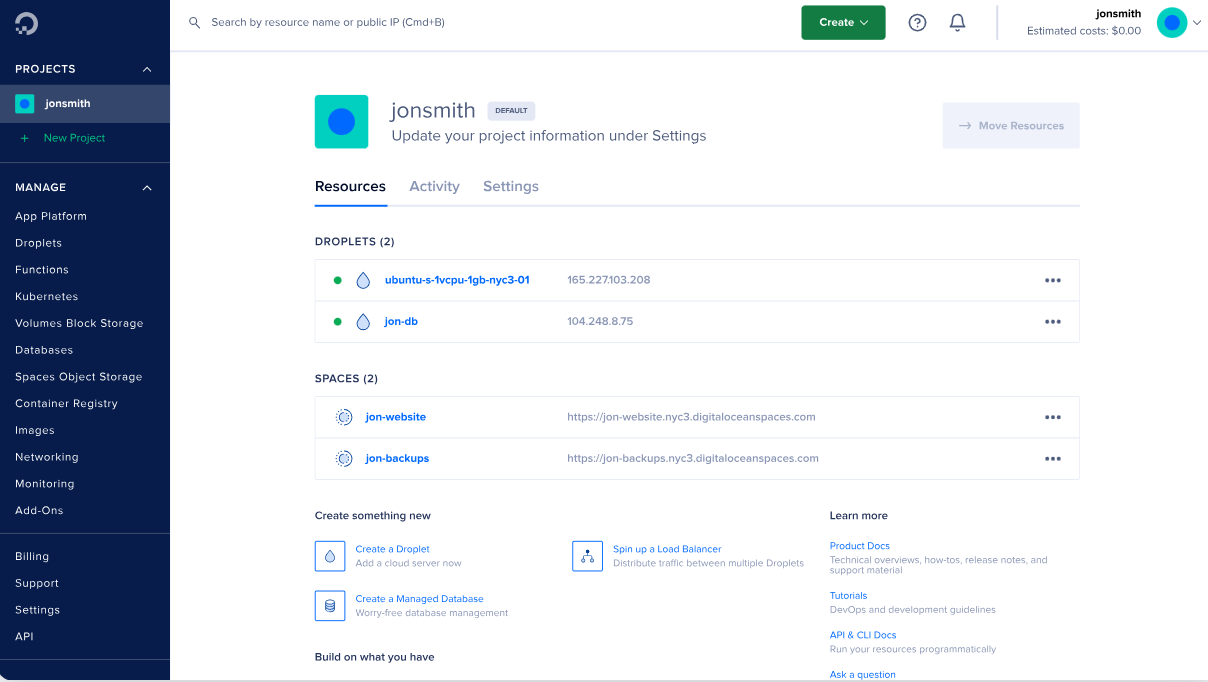
Both DreamHost and DigitalOcean provide user-friendly solutions for site migration. DreamHost features a Migration Dashboard that guides users through the process step-by-step, scanning the site and presenting options without additional costs. DigitalOcean, via Cloudways, also offers migration services. Cloudways simplifies this operation, offering free WordPress migrations with specific plans. Both platforms offer automated tools, but DreamHost’s streamlined dashboard arguably makes migration even more accessible for non-technical users.
DigitalOcean and DreamHost both feature extensive help centers and knowledge bases filled with articles and tutorials. DigitalOcean includes thorough documentation and community forums, complemented by ticket-based support. Their community resources provide an excellent repository of shared knowledge among developers. DreamHost offers a massive, searchable knowledge base with 24/7 in-house expert support, including email and chat options. For a more personalized support experience, DreamHost’s extensive guides and expert assistance stand out.
User management
accessibility.
Score Components:
- Role customization (40%): Flexibility in creating and defining user roles and
permissions. - Ease of management (30%): User interface and tools for managing users.
- Access control (20%): Effectiveness of access control measures for different user
levels. - Scalability (10%): Ability to manage a growing number of users efficiently.
 8.0
8.0
 8.1
8.1
🏆 Winner DreamHost: An all-encompassing hosting provider with extensive user management features.
When comparing DigitalOcean and DreamHost in managing user roles and permissions, both platforms provide comprehensive solutions, but with different focuses. DigitalOcean offers three specific roles—Owner, Biller, and Member—with clear and straightforward access controls. Each role provides either complete access to shared resources or specific areas like billing. This structure allows for defined tasks but may lack the granularity that some larger teams need. On the other hand, DreamHost emphasizes broader usability by granting access through unlimited SFTP users and SSH, alongside tools like password protection and subversion repositories. These features cater to various roles without strictly defined labels, offering flexibility in permissions based on individual user needs.
In terms of user interfaces and tools for managing users, DigitalOcean focuses on a streamlined, straightforward approach. Team owners can easily invite new members, view membership statuses, and manage roles within an intuitive panel. DreamHost presents a more multifaceted user management system through a custom-built control panel. This panel enables users to manage domains, email accounts, FTP & SSH access, and more. The DreamHost interface is designed to cater both to novice users with its simplicity and to advanced users through extensive options, ensuring a versatile user experience.
Evaluating access control effectiveness, DigitalOcean provides robust tools for monitoring and managing team membership, including viewing each member’s sign-in method. This clear delineation ensures efficient user management, particularly useful for teams of various sizes. DreamHost, with its unlimited SFTP users and SSH access, offers significant scalability and flexibility. Its custom control panel and advanced automation tools like Cron provide robust capabilities for managing larger and more complex user environments efficiently.
DigitalOcean User Roles Table:
| Role | Description | Access highlights |
|---|---|---|
| Owner | Full access to shared resources, billing information, and team settings. | Full management of team, resources, and billing. |
| Biller | Access limited to billing information. | No access to shared resources or team settings. |
| Member | Full access to shared resources. | No access to billing information or team settings. |
Customer support
hosting provider.
Score Components:
- Support communication channels (30%): Measures the variety of customer support types
provided (live chat, chatbot, email, phone, etc.) - Availability (20%): Assesses the availability hours for each channel, including 24/7
support options. - Technical support quality (30%): Assesses whether the provider offers comprehensive
technical support, including hardware upgrades (e.g., HDD to SSD), software installations, and web
server configuration changes. - Enterprise support (20%): Checks if there are dedicated or priority support services
for enterprise-level customers.
 7.8
7.8
 8.3
8.3
🏆 Winner
DreamHost: Offering comprehensive 24/7/365 support through various channels and the longest money-back guarantee for shared hosting products.
 |
 |
|
|---|---|---|
Phone support |
||
Live chat support |
(premium) |
|
Chatbot |
||
Email/ticket support |
||
Enterprise support (dedicated agent, priority support) |
(premium) |
(callback service for an additional fee) |
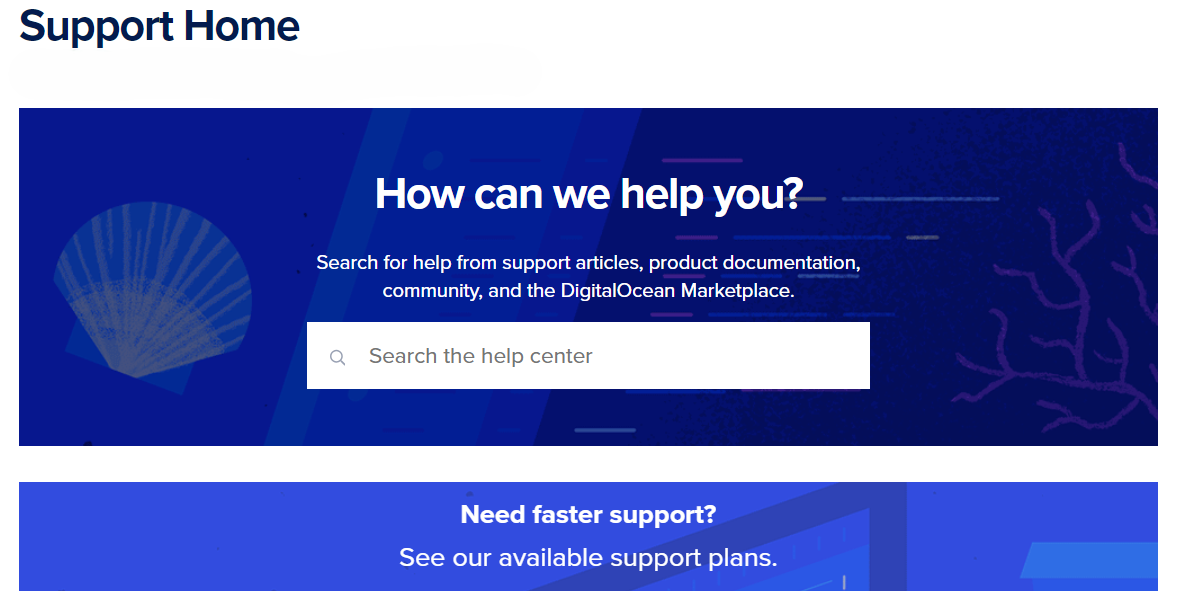
DigitalOcean provides a range of support options, including email, online ticketing with an SLA for critical issues, and premium live chat support. Their community forum and extensive documentation serve as valuable resources for users. However, contacting support for refunds or cancellations has been reported to be challenging by some users. DreamHost, on the other hand, boasts an all-encompassing 24/7/365 support system through live chat, email, and a ticket system, with the option for callback services for an additional fee. Their response times are quick, and they support both English and Spanish languages. DreamHost’s lack of direct phone support is offset by their comprehensive knowledge base and 97-day money-back guarantee for shared hosting.
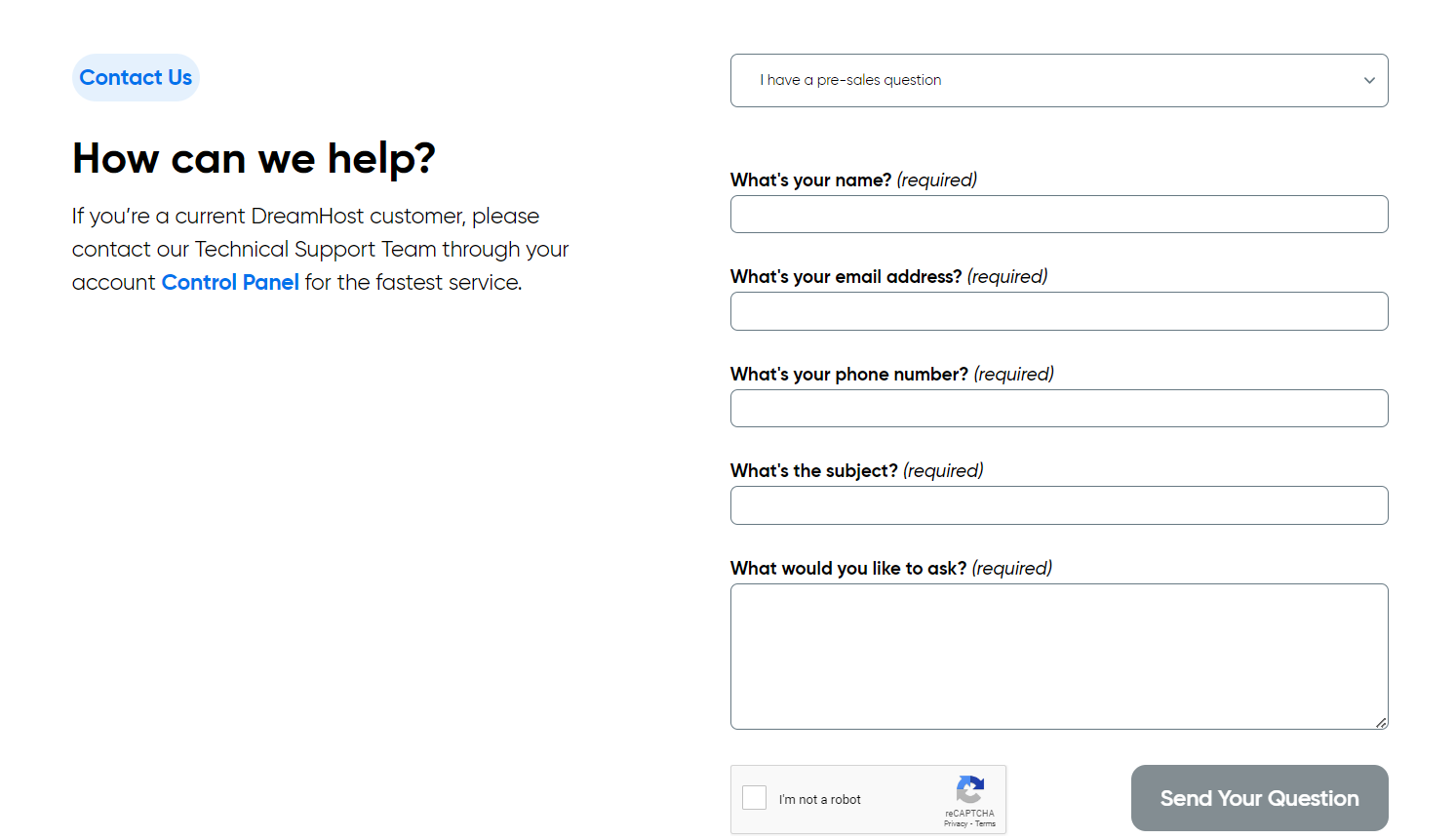
DigitalOcean’s strong points include their extensive documentation and community forum, providing answers to common questions and troubleshooting support. Their online ticketing system ensures that critical issues receive timely responses due to the SLA. DreamHost surpasses DigitalOcean in support availability with their 24/7/365 live chat, quick response times, and bilingual support in English and Spanish. While DigitalOcean requires premium membership for some features like live chat, DreamHost offers these features as a standard, enhancing overall user accessibility.
Digital Ocean vs Dreamhost: User feedback
DigitalOcean consistently garners praise for its simplicity, user-friendly interface, and transparent pricing, making it ideal for both beginners and experienced developers. Users appreciate the straightforward setup, reliable performance, and excellent customer support, highlighting features like one-click deployment and robust documentation. However, there are some minor criticisms, including a limited variety of server configurations compared to larger providers and occasional slow customer support response times. Despite these drawbacks, DigitalOcean is highly regarded for its cost-effectiveness, ease of use, and overall reliability, particularly for small to medium-sized businesses and startups.
DreamHost is a well-regarded hosting provider praised for its reliability, affordable pricing, user-friendly interface, and excellent performance. Users especially appreciate the responsive customer support, the easy navigation of the web portal, and a variety of hosting options suitable for different needs. However, common criticisms include the lack of phone support, occasional slow response times from customer service, and some challenges related to advanced functionalities and site migrations. While the majority of users report positive experiences, a few have faced significant issues with downtime and customer service, impacting their overall satisfaction.
Digital Ocean vs Dreamhost: FAQ
Which platform is better suited for hosting WordPress websites?
DreamHost offers a more tailored WordPress hosting experience with its managed WordPress hosting plans that include performance optimization and additional support. DigitalOcean does provide WordPress hosting, but it is more suited for developers who prefer a hands-on approach to setting up and managing their WordPress sites. Thus, DreamHost is generally seen as the better option for most users looking to host WordPress websites easily.
Are both platforms suitable for beginners?
DreamHost is more suitable for beginners thanks to its user-friendly interface, built-in website builder, and extensive customer support. DigitalOcean, while powerful and flexible, is more geared toward developers who are comfortable with server management and may find the lack of a guided setup challenging. Therefore, if you are a beginner, DreamHost would be the more appropriate choice.
Which hosting service offers better security features?
DigitalOcean excels in security features with its comprehensive suite that includes DDoS protection, cloud firewalls, web application firewalls, and data encryption both at rest and in transit. DreamHost also offers robust security features such as DDoS protection, mod_security, RAID 1 storage, and malware scanning through DreamShield. However, DigitalOcean’s additional defenses and HIPAA compliance give it a slight edge in terms of overall security offerings.
Which platform offers better customer support?
DreamHost provides more comprehensive customer support with its 24/7/365 live chat, email, and ticket system, and offers the option for callback services for an additional fee. DigitalOcean also offers strong support through email and ticketing, but live chat is a premium service and it lacks direct phone support. Thus, DreamHost’s extensive support system makes it the better choice in this category.
Which hosting service offers more scalability options for growing websites?
Both DigitalOcean and DreamHost offer scalable solutions, but DigitalOcean provides more flexible and varied options. DigitalOcean allows for horizontal scaling with its Droplet system, making it easier to manage resources and scale as needs grow. DreamHost offers expandable RAM and storage but is less clear about specific scaling costs and options. Therefore, DigitalOcean is the more versatile option for growing websites.
The making of this blog
We followed a clear, step-by-step process to write and research this article.









